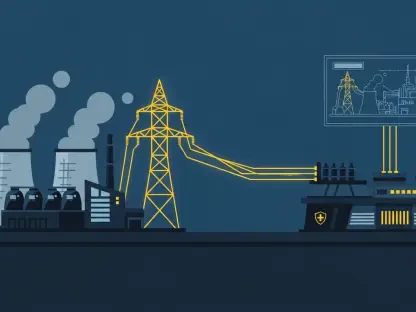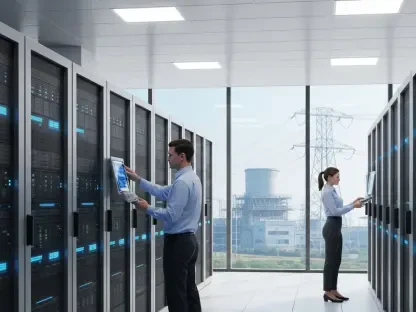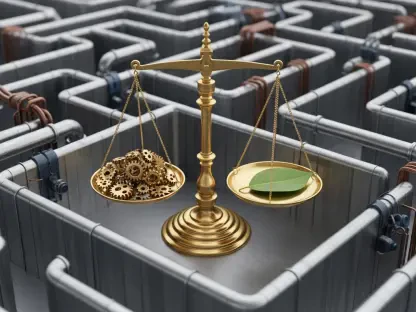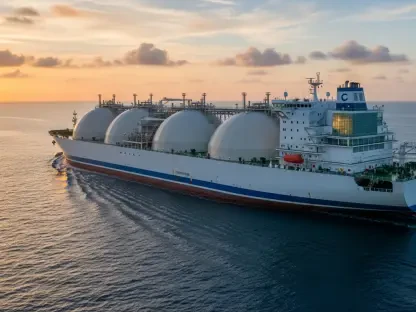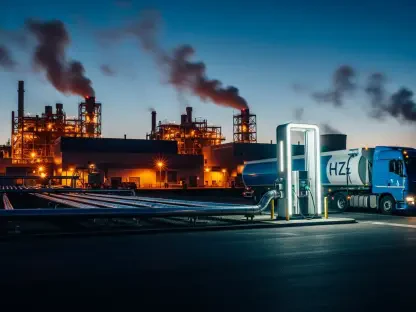Today, we’re sitting down with Christopher Hailstone, a seasoned expert in energy management, renewable energy, and electricity delivery. As our go-to utilities specialist, Christopher brings a wealth of knowledge on grid reliability and security, making him the perfect person to help us unpack the dramatic events and critical discussions at the COP30 climate summit in Belem, Brazil. From a disruptive fire at the venue to the intense negotiations over fossil fuels and climate finance, this interview dives into the challenges and aspirations of global climate action, Brazil’s leadership role, and the urgent need for compromise with time running out.
Can you walk us through what happened with the fire at the COP30 venue in Belem?
Sure, it was a pretty chaotic moment at the summit. A fire broke out in an exhibition pavilion, and security footage showed flames spreading quickly up an internal fabric shell lining the walls and ceiling. The local fire service pointed to electrical equipment—possibly a microwave—as the likely cause. Thankfully, it was brought under control in just six minutes, but not before it caused a significant disruption. Thirteen people needed medical attention for smoke inhalation, and thousands of delegates had to be evacuated. Security staff formed a human barrier to manage the crowd and ensure everyone got out safely. It was a stark reminder of how even logistical hiccups can throw a wrench into high-stakes events like this.
How has this fire impacted the ongoing negotiations at COP30?
The fire definitely put a pause on things. Negotiations were halted right after the incident, and they’re not expected to resume until Friday morning. There’s talk of some consultations happening outside the main venue Thursday night, but that depends on safety assessments. With less than 24 hours left until the summit’s scheduled end, this delay has tightened an already squeezed timeline. The summit had already missed a self-imposed Wednesday deadline for a deal, so this disruption just adds more pressure to find consensus on critical issues like climate finance and fossil fuels.
Turning to Brazil’s role as host, what are the key goals they’re pushing for at COP30?
Brazil has positioned itself as a strong advocate for meaningful progress at this summit. They see a deal here as a vital step to ramp up global climate action, especially in showing that there’s widespread support to turn decades of promises into tangible results. Their leadership is focused on building momentum, not just for their own region but for the world, by emphasizing the urgency of acting now. They’re working to bridge gaps between nations and demonstrate that collective will can overcome longstanding divides, particularly on issues that have stalled progress for years.
Brazil recently shared a draft proposal for part of the COP30 deal. Can you tell us what stood out in that document?
Yes, Brazil circulated a draft to some governments that’s been a focal point of discussion. One of the big highlights is a call to triple financing for climate adaptation by 2030, compared to 2025 levels. However, it’s vague on where this money would come from—whether it’s directly from wealthy governments, development banks, or the private sector. Notably absent is any roadmap for transitioning away from fossil fuels, which has raised eyebrows given how central that issue is. It’s a partial framework, and while some negotiators were working on it right before the fire, others hadn’t even seen it yet, which shows how fragmented the process still is.
Speaking of fossil fuels, can you explain why they’re such a divisive issue at this summit?
Fossil fuels are always a lightning rod at these talks, and COP30 is no exception. On one side, dozens of countries—both developed and developing—are pushing for a clear roadmap to transition away from fossil fuels, building on last year’s COP28 agreement to move in that direction. On the other side, some fossil fuel-producing nations are digging in their heels, resisting any specific timeline or plan. It’s a classic clash of economic interests versus climate imperatives. The fact that burning fossil fuels is the biggest driver of global warming just ramps up the stakes, making it hard to find a middle ground.
Climate finance seems to be another major hurdle. What’s holding things up on that front?
Climate finance is a perennial sticking point, and at COP30, the challenges are glaring. Some richer nations are hesitant to commit to concrete funding targets for helping poorer countries adapt to climate change. There’s also a deep mistrust among developing countries, especially after unfulfilled pledges like the $300 billion promise from last year’s COP29. The frustration is palpable—countries most vulnerable to climate impacts, like small island nations, are losing lives and livelihoods to stronger storms and rising seas. They’re pleading for transformative outcomes on adaptation, but the reluctance of wealthier nations to step up with firm commitments is creating a real deadlock.
Looking ahead, what is your forecast for the outcome of COP30 given these challenges and the ticking clock?
Honestly, it’s a tough call. With the fire disruption and the missed deadlines, the window for a comprehensive deal is razor-thin. I’m cautiously optimistic that some compromise can be reached, especially on adaptation financing, given Brazil’s push to show leadership. But on fossil fuels, the divide might be too deep to bridge in the remaining hours. My forecast is that we’ll see a partial agreement—something that moves the needle on funding but leaves the harder questions about energy transitions for future summits. The real test will be whether countries can maintain momentum after Belem and turn any agreement into action, not just words on paper.



